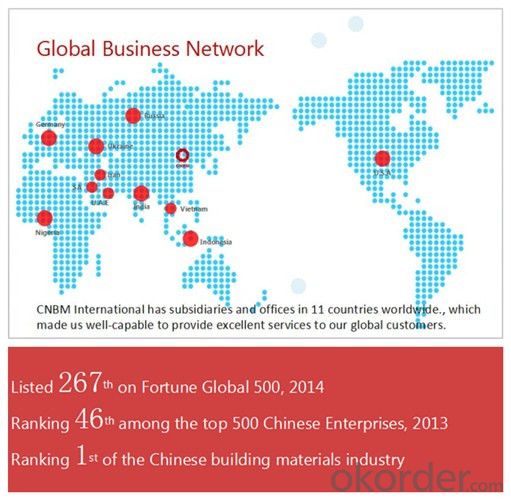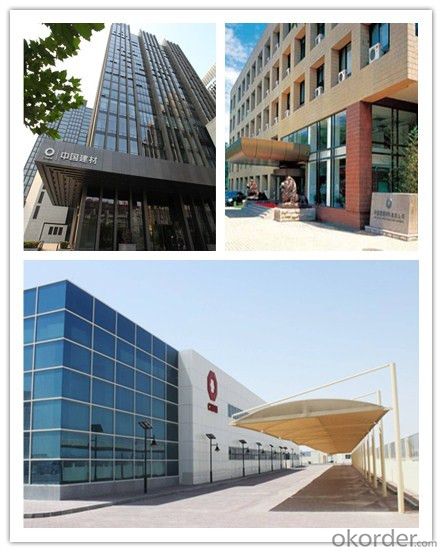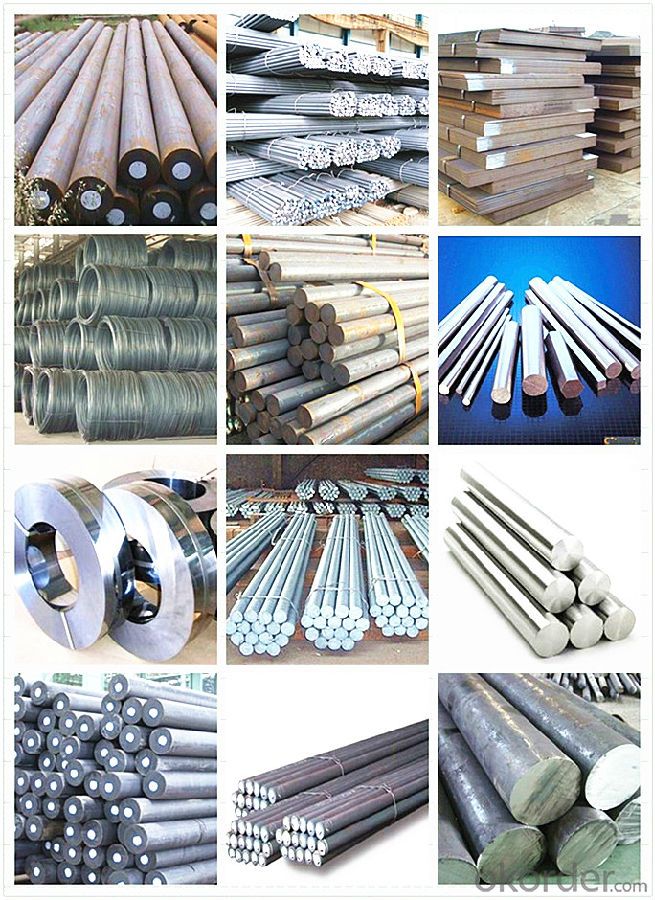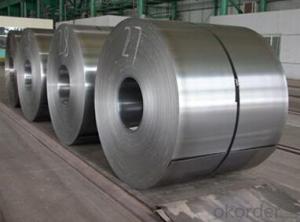Grade JIS SGCH G550 Galvanized Steel Coil
- Loading Port:
- Tianjin
- Payment Terms:
- TT OR LC
- Min Order Qty:
- 3 m.t.
- Supply Capability:
- 10000 m.t./month
OKorder Service Pledge
OKorder Financial Service
You Might Also Like
Item specifice
Grade JIS SGCH G550 Galvanized Steel Coil
Specification of Grade Grade JIS SGCH G550 Galvanized Steel Coil
1. Galvanized Steel Coil
(1) Width: 600-1570mm
(2) Thickness: 0.13-5.0mm
(3) Grade: JIS G3302-SGCC-SGC570, SGCH (full hard-G550), SGHC-SGH540
EN10346-DX51D+Z, DX53D+Z, S250GD-S550GD
STM A653-CS-B, SS255-SS550
(4) Zinc Coating: Z40g/m2~Z500g/m2 (both side total coating thickness)
2. Galvalume Steel Coil
(1) Width: 600~1500mm
(2) Thickness: 0.15~2.30mm
(3) Grade: JIS G3321-SGLCC, SGLC400-570, (G550)
EN10346-DX51D+AZ, DX53D+AZ, S250-S550
ASTM A792M CS-B, SS255-SS550
(4) AZ Coating: AZ50~AZ185g/m2
3. Prepainted Galvanized Steel Coil (PPGI)
(1) Width: 600~1250mm
(2) Thickness: 0.19~1.50mm
(3) Grade: JIS G3312-CGCC, CGC340-570, (G550)
ASTM A755M CS-B, SS255-SS550
(4) Zinc Coating: Z40g/m2~Z500g/m2 (both side total coating thickness)
4. Prepainted Galvanized Steel Coil (PPGL)
(1) Width: 600~1250mm
(2) Thickness: 0.20~1.50mm
(3) Grade: JIS G3322-CGLCC, CGLC340-570, (G550)
ASTM A755M CS-B, SS255-SS550
(4) AZ Coating: AZ50~AZ185g/m2 (both side total coating thickness)
5. Cold Rolled Steel Coil (Soft) (for further information, pls click the product name)
(1) Width: 600~1570mm
(2) Thickness: 0.13~2.50mm
(3) Grade: JIS G3141-SPCC-SD, SPCD-SD, SPEC-SD
JIS G3135-SPFC 340/390/440
EN10130-DC01, DC03, DC04
SAE1006, SAE1008
ASTM A424-TypeⅡ
6. Cold Rolled Steel Coil (Full Hard) (for further information, pls click the product name)
(1) Width: 600~1570mm
(2) Thickness: 0.13~2.50mm
(3) Grade: JIS G3141-SPCC-1B, SPCC-1D
7. Hot Rolled Steel Coil
(1) Width: 1000~1524mm
(2) Thickness: 1.20~16.5mm, other thickness can be negotiation
(3) Grade: JIS G3101-SS400, JIS G3132-SPHT1/2/3, ASTM A36, Q195, Q235 etc.
Company Introduction of the Grade JIS SGCH G550 Galvanized Steel Coil
CNBM International Corporation is the most import and export platform of CNBM group(China National Building Material Group Corporation) ,which is a state-owned enterprise, ranked in 270th of Fortune Global 500 in 2015.
With its advantages, CNBM International are mainly concentrate on Cement, Glass, Iron and Steel, Ceramics industries and devotes herself for supplying high quality series of refractories as well as technical consultancies and logistics solution.


Packaging & Delivery Grade Grade JIS SGCH G550 Galvanized Steel Coil
Packaging Detail | Sea worthy packing /as per customer's packing instruction |
Delivery Detail | 15 ~ 40 days after receiving the deposit |
Products Show:

FAQ:
Are you a trading company or manufacturer? | Manufacturer |
What’s the MOQ? | 3 metric ton |
What’s your delivery time? | 15-35 days after downpayment received |
Do you Accept OEM service? | Yes |
what’s your delivery terms? | FOB/CFR/CIF |
What's the Payment Terms? | 30% as deposit,70% before shipment by T/T |
Western Union acceptable for small amount. | |
L/C acceptable for large amount. | |
Scrow ,Paybal,Alipay are also ok | |
Why choose us? | Chose happens because of quality, then price, We can give you both. Additionally, we can also offer professional products inquiry, products knowledge train (for agents), smooth goods delivery, excellent customer solution proposals. |
What's your available port of Shipment? | Main Port, China |
What’s your featured services? | Our service formula: good quality+ good price+ good service=customer's trust
|
Where are your Market? | Covering more than 160 countries in the world |
- Q:How does special steel perform in terms of electrical conductivity?
- Special steel does not have high electrical conductivity compared to other materials such as copper or aluminum.
- Q:How does special steel perform in high-vibration environments?
- Special steel performs well in high-vibration environments due to its exceptional strength, durability, and ability to dampen vibrations. Its unique composition and heat treatment make it highly resistant to fatigue, reducing the risk of fractures or failures caused by constant vibrations. Additionally, special steel's excellent hardness and toughness properties allow it to maintain its structural integrity and performance even under severe vibration conditions.
- Q:What are the different surface hardening grades of special steel?
- Different surface hardening grades of special steel are available, each with specific characteristics and properties. Some commonly used grades include the following: 1. Case-hardening steels: These grades, typically low carbon steels, develop a hard outer layer while maintaining a softer core. Carburizing or nitriding processes introduce carbon or nitrogen into the steel surface. These steels are used in applications where wear resistance and toughness are necessary. 2. Tool steels: These grades are designed for cutting, forming, and shaping tools. Tool steels are known for their high hardness, wear resistance, and ability to retain a cutting edge even at high temperatures. Various types of tool steels, such as HSS, hot work steel, cold work steel, and plastic mold steel, are suitable for specific applications. 3. Stainless steels: These grades contain a minimum of 10.5% chromium, providing excellent corrosion resistance. Stainless steels can be hardened through precipitation hardening or martensitic transformation. They are commonly used in industries requiring resistance to corrosion and high temperatures, such as food processing, chemical, and medical industries. 4. High-strength steels: These grades offer exceptional strength and toughness. They often contain alloying elements like manganese, chromium, or nickel to enhance their mechanical properties. High-strength steels are commonly used in structural applications, automotive components, and heavy machinery. 5. Maraging steels: These grades are known for their high strength, toughness, and excellent resistance to fracture. Maraging steels achieve these properties through a unique aging process involving precipitation hardening. They find applications in aerospace, defense, and tooling industries. 6. Bearing steels: These grades are specially formulated to provide excellent wear resistance and durability for bearing applications. Bearing steels often contain alloying elements like chromium, molybdenum, and vanadium to enhance their mechanical properties and fatigue resistance. These examples represent the diverse range of surface hardening grades of special steel, each offering unique properties and characteristics. This allows for a wide range of applications across various industries.
- Q:How does special steel contribute to improving product durability?
- Special steel contributes to improving product durability in several ways. Firstly, special steel is known for its high strength and toughness, which makes it more resistant to wear and tear. This means that products made with special steel are less likely to develop cracks, deformations, or other forms of damage during regular use. Additionally, special steel often has enhanced corrosion resistance properties, making it more resistant to rust and other forms of degradation. This helps to prolong the lifespan of products, particularly those exposed to harsh environments or extreme weather conditions. Moreover, special steel can also offer increased heat resistance, enabling products to withstand high temperatures without losing their structural integrity. Overall, the use of special steel in manufacturing processes significantly enhances the durability and longevity of products.
- Q:Can special steel be used for medical implants?
- Yes, special steel can be used for medical implants. Certain types of stainless steel, such as 316L, are commonly utilized in the manufacturing of medical implants due to their excellent biocompatibility, corrosion resistance, and mechanical properties.
- Q:How does special steel contribute to the renewable energy aftermarket industry?
- Enhancing the efficiency, durability, and cost-effectiveness of renewable energy systems, special steel plays a critical role in the aftermarket industry. Wind turbine components are one of the primary beneficiaries of special steel in this industry. To withstand harsh environmental conditions and generate electricity efficiently, wind turbines require materials that are both high-strength and corrosion-resistant. Special steel alloys, such as high-strength low-alloy (HSLA) steel and stainless steel, offer exceptional mechanical properties, fatigue resistance, and corrosion resistance, making them an ideal choice for critical wind turbine components like rotor blades, tower structures, and more. By incorporating special steel into wind turbine manufacturing, the aftermarket industry can enjoy several advantages. Turbine lifespan is extended, maintenance costs are reduced, and energy output is improved. The strength and durability of special steel also allow for the construction of taller and larger wind turbine towers, enabling the installation of turbines in areas with lower wind speeds. This expansion of suitable locations maximizes the potential for energy production, making wind energy a more viable and widespread renewable energy source. Additionally, special steel contributes to the aftermarket industry through its application in solar power systems. Solar panels require sturdy mounting structures to handle the weight of the panels, withstand wind and snow loads, and ensure optimal sun exposure. Special steel, with its high strength-to-weight ratio and corrosion resistance, is commonly used in these mounting structures, providing long-lasting and reliable support for solar panels. Moreover, special steel finds applications in other renewable energy systems such as hydroelectric power plants and geothermal systems. These industries benefit from the corrosion resistance and ability to withstand extreme temperatures offered by special steel, ensuring the longevity and efficiency of the equipment. Overall, special steel plays a significant role in driving the growth and adoption of renewable energy sources worldwide. By enabling the production of reliable, durable, and efficient renewable energy systems, special steel contributes to the success of the aftermarket industry. Whether in wind turbines, solar panels, or other renewable energy technologies, special steel enhances performance and longevity, ultimately advancing the use of renewable energy sources on a global scale.
- Q:What are the different surface protection methods used for special steel?
- The different surface protection methods used for special steel include galvanizing, painting, powder coating, and electroplating. These methods are employed to prevent corrosion, enhance durability, and improve appearance. Galvanizing involves applying a layer of zinc to the steel surface, creating a protective barrier. Painting involves applying a coat of paint, acting as a protective layer against environmental factors. Powder coating is a process where a dry powder is applied to the steel surface and then heated to form a durable and protective layer. Electroplating involves depositing a thin layer of metal onto the steel surface through an electrolytic process, providing corrosion resistance and aesthetic appeal.
- Q:What are the specific requirements for special steel used in the nuclear waste storage industry?
- The specific requirements for special steel used in the nuclear waste storage industry are stringent and critical for ensuring the safety and long-term viability of the storage facilities. These requirements are primarily driven by the need to mitigate the potential risks associated with nuclear waste, such as radiation leakage and corrosion. One of the key requirements is high strength and durability. Special steel used in nuclear waste storage must have exceptional mechanical properties to withstand the weight and pressure exerted by the waste containers and the surrounding environment. This includes resistance to deformation, fracture, and fatigue, as well as the ability to maintain its structural integrity over an extended period. Another crucial requirement is excellent corrosion resistance. Nuclear waste contains highly corrosive substances that can degrade regular steel over time. Therefore, special steel used in the nuclear waste storage industry must have enhanced corrosion resistance to ensure long-term durability and prevent leakage of radioactive materials. Moreover, the steel must have a low susceptibility to stress corrosion cracking (SCC). SCC occurs when a combination of tensile stress, corrosive environment, and specific material conditions result in crack initiation and propagation. Given the potential consequences of a breach in the storage facility, the steel used must be highly resistant to SCC to ensure the integrity of the containers and minimize the risk of leakage. Radiation resistance is also a critical requirement for special steel used in nuclear waste storage. The steel should exhibit minimal degradation or embrittlement when exposed to high levels of radiation. This is essential to maintain the structural integrity of the storage containers and prevent any weakening that could compromise the containment of the waste. Additionally, the special steel used in the nuclear waste storage industry must comply with strict regulatory standards and certifications. It must meet specific design codes and guidelines set by regulatory authorities to ensure compliance with safety regulations and minimize potential hazards. In summary, the specific requirements for special steel used in the nuclear waste storage industry include high strength, durability, corrosion resistance, low susceptibility to stress corrosion cracking, radiation resistance, and compliance with regulatory standards. These requirements are crucial for maintaining the safety and integrity of the storage facilities and preventing any leakage or release of radioactive materials into the environment.
- Q:How does special steel contribute to the automotive exhaust system industry?
- Special steel contributes to the automotive exhaust system industry by offering enhanced durability, corrosion resistance, and heat resistance. It allows for the production of exhaust components that can withstand high temperatures and harsh conditions, resulting in improved performance and longevity of the system. Additionally, special steel enables the design of lightweight exhaust systems, which contribute to fuel efficiency and reduce emissions.
- Q:How does special steel contribute to the agriculture aftermarket industry?
- The agriculture aftermarket industry relies heavily on special steel, which plays a vital role in enhancing productivity and efficiency in farming operations through the provision of high-performance components and equipment. Special steel, also known as alloy steel, is specifically engineered to possess properties such as strength, durability, corrosion resistance, and heat resistance, making it well-suited for various agricultural applications. One of the major contributions of special steel to the agriculture aftermarket industry is the manufacturing of machinery parts that are durable and reliable. These parts, including plowshares, blades, and tines, face harsh conditions such as intense wear, impact, and exposure to corrosive substances. However, special steel components can endure these challenges and offer a longer service life, resulting in reduced downtime and maintenance costs for farmers. Moreover, special steel is utilized in the production of agricultural equipment such as tractors, harvesters, and sprayers. These machines require materials that are both strong and lightweight to ensure optimal performance and fuel efficiency. The use of special steel grades provides the necessary strength while keeping the equipment's weight low, enabling farmers to cover larger areas and increase their productivity. Additionally, special steel alloys are employed in the manufacturing of precision tools used in precise farming techniques, such as cutting blades and drill bits. These tools allow farmers to carry out tasks with high accuracy, such as soil sampling, seeding, and crop monitoring. The durability and sharpness of special steel tools enhance the precision and effectiveness of these operations, leading to improved crop yields and efficient use of resources. Furthermore, special steel is also utilized in the construction of infrastructure related to the agriculture aftermarket industry. Steel beams and columns, for example, are used in the fabrication of storage facilities, barns, and grain silos, providing structural strength and stability. This infrastructure enables efficient storage, handling, and transportation of agricultural products, contributing to the overall efficiency of the industry. In conclusion, special steel is an indispensable component of the agriculture aftermarket industry as it contributes to the production of durable machinery parts, lightweight equipment, precision tools, and robust infrastructure. By offering enhanced strength, durability, and corrosion resistance, special steel helps farmers improve productivity, reduce downtime and maintenance costs, and achieve better crop yields.
1. Manufacturer Overview |
|
|---|---|
| Location | |
| Year Established | |
| Annual Output Value | |
| Main Markets | |
| Company Certifications | |
2. Manufacturer Certificates |
|
|---|---|
| a) Certification Name | |
| Range | |
| Reference | |
| Validity Period | |
3. Manufacturer Capability |
|
|---|---|
| a)Trade Capacity | |
| Nearest Port | |
| Export Percentage | |
| No.of Employees in Trade Department | |
| Language Spoken: | |
| b)Factory Information | |
| Factory Size: | |
| No. of Production Lines | |
| Contract Manufacturing | |
| Product Price Range | |
Send your message to us
Grade JIS SGCH G550 Galvanized Steel Coil
- Loading Port:
- Tianjin
- Payment Terms:
- TT OR LC
- Min Order Qty:
- 3 m.t.
- Supply Capability:
- 10000 m.t./month
OKorder Service Pledge
OKorder Financial Service
Similar products
New products
Hot products
Related keywords

































